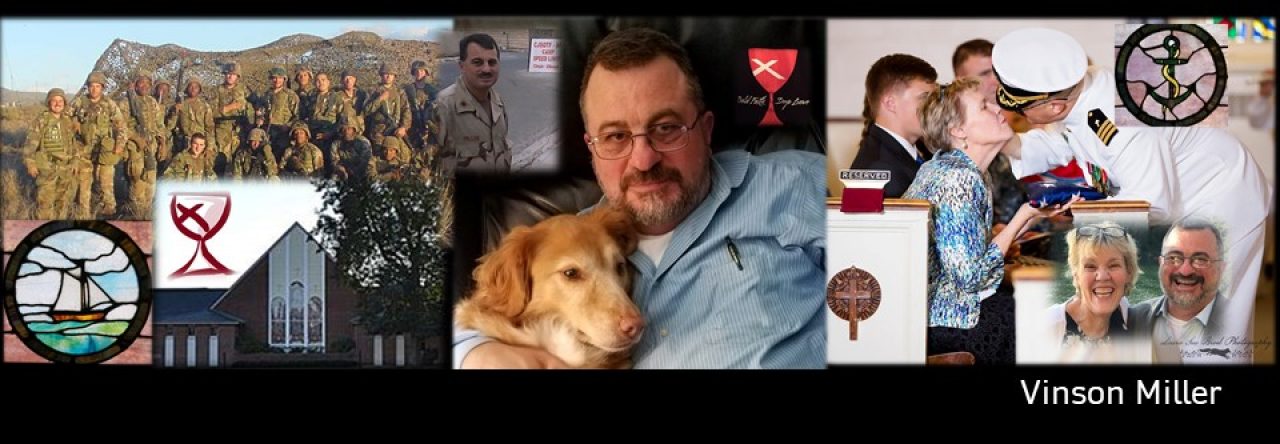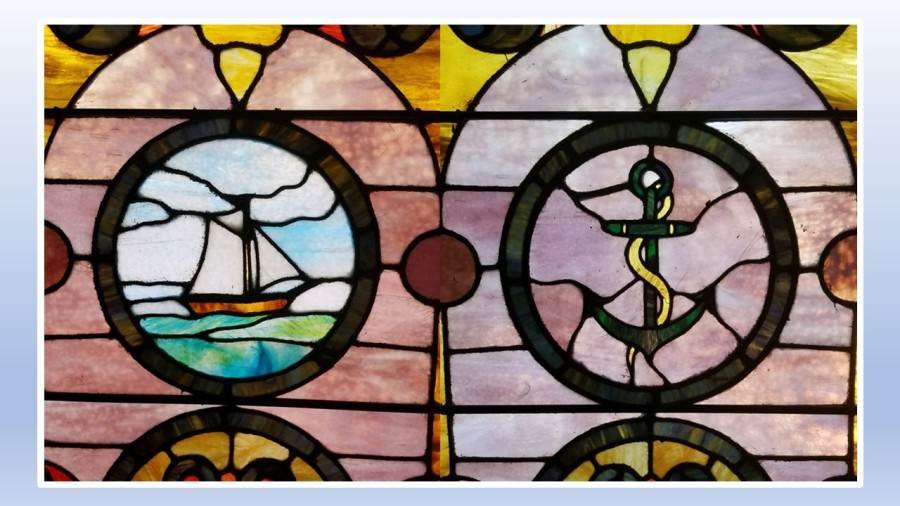Sermon of 31 December 2017, “New Year’s Eve,” at First Christian Church in Hampton VA. A most blessed and happy new year!
____________________________________
GOSPEL OF LUKE 2:(1-7) 8-20, New Revised Standard Version
In that region there were shepherds living in the fields, keeping watch over their flock by night. Then an angel of the Lord stood before them, and the glory of the Lord shone around them, and they were terrified. But the angel said to them, “Do not be afraid; for see—I am bringing you good news of great joy for all the people: to you is born this day in the city of David a Savior, who is the Messiah, the Lord. This will be a sign for you: you will find a child wrapped in bands of cloth and lying in a manger.” And suddenly there was with the angel a multitude of the heavenly host, praising God and saying,
“Glory to God in the highest heaven,
and on earth peace among those whom he favors!”
When the angels had left them and gone into heaven, the shepherds said to one another, “Let us go now to Bethlehem and see this thing that has taken place, which the Lord has made known to us.” So they went with haste and found Mary and Joseph, and the child lying in the manger. When they saw this, they made known what had been told them about this child; and all who heard it were amazed at what the shepherds told them. But Mary treasured all these words and pondered them in her heart. The shepherds returned, glorifying and praising God for all they had heard and seen, as it had been told them.
___________________________________
INTRODUCTION
Timing is everything, isn’t it?
In the reading from the Gospel of Luke there is an indelible image of timing that at first glance seems to have been all wrong. It isn’t like the mere string of green lights or red lights on the way somewhere that leaves us happy for one or muttering for another, about this thing called “timing.” It’s a lot more intense.
There is the young woman who is engaged that’s found to be with child, and Joseph wasn’t the father. In spite of being noticeably holy or perhaps because of it, one can only imagine the looks Mary received or under the breath comments she heard. People being who they so often are, unfortunately.
There is this couple who found themselves displaced by a mandated governmental census wholly designed to ensure robust taxes by the far off city of Rome. An experience which only served to make the hard life of the working poor harder, by forcing them to bear the costs of travel and lodging amid this massive movement of people.
There is that dusty journey itself that required traveling in the very window of the mother’s due date, to a place her husband did not call home except by ancestry, where it’s likely she had no relatives and no support system, upon their arrival and certainly there was no room for them. Just the chaos of a village already swollen by others forced to travel for the census.
There is their temporary home being a stable, little more than rough cave cut into the rock, now filling in as a birthing room. And unspoken by Luke, having myself watched a mother die in childbirth leaving a newborn behind, I would think there would have also been the thought of the “what if” during an age of high infant mortality and first time mothers who did not always survive.
Let’s face it, these are the only circumstances Luke addresses or that we can reasonably speculate upon. I would imagine there were others. It is in the midst of crisis or major decisions, that we invariably wonder how God operates amid such circumstances.
WHY I BRING THIS UP
While God is doing “a new thing” for humanity, or as Paul puts it in his letter to the Galatians “in the fullness of time Christ appeared,” it seems to me that God’s plan itself is more often than not carried out by the unassuming, like Mary, and the initially reluctant, like Joseph, and in ways not understood at first. In a lesser way, I suspect it is the same for us. Perhaps, more than we realize.
FOR INSTANCE
When we consider the Lukan portrayals of Mary and Joseph, a seemingly unlikely two finding themselves with each other at the very center of the God’s greatest gift to humanity, we see a very Jewish family intent on keeping all the Jewish laws blamelessly. As we might say, they colored inside the lines, as they acted to ensure completion of the three rituals that would be expected of them: Circumcision, performed on the eighth day, for all male children; Purification from childbirth for Mary, 40 days after her son’s birth, and Consecration of the firstborn, in recognition that the firstborn son belongs to the Lord. But things had changed. God was now coloring outside the familiar lines, in an act of liberation, for as the Apostle Paul observed: “But when the time had fully come, God sent his Son, born of a woman, born under law, to redeem those under law…” [Galatians 4:4-5].
Making the two to three hour walk from nearby Bethlehem, and passing through the western gate of the Temple Mount, I expect, the glory of the Temple stood before them as the crowd pressed past them. Not destitute, but decidedly low on funds, they purchased the minimum offering set forth in Leviticus 5:7 for those of tight economic means. Then the steps of Mary and Joseph are interrupted by a man who scooped up Jesus and spoke of how he could now die in peace, for “My own eyes have seen the salvation which you have prepared in the sight of every people: a light to reveal you to the nations and the glory of your people Israel.”
Imagine how you would react if confronted by someone saying he is ready to die having seen your son; going on to say that your son’s life destines some to rise and others to fall to the extent that the negative inference hangs over his words “the inner thoughts of many will be revealed” and finally, (3) the unhappy thought that “a sword will pierce your own soul” as well. Only then for the aged Anna, interrupting the moment on a more positive note, praising God and speaking to the deeper meaning of the Messiah’s true role and the new thing God was doing through Jesus. There must have been a swirl in their minds, as these words rained on Mary and Joseph, this on the heels of the preceding months that took them from when Mary first encountered an angel of the Lord to the more recent experience of having angels and shepherds intruding into their lowly “no room in the inn” stable. I think most folk would be looking for a chair to sit down on, while trying to process this now unexpected carol.
Buried in my copy of the classic devotional book “My Utmost for His Highest,” which while not a commentary on this event in Luke, it nevertheless offers this keen insight. Oswald Chambers writes:
“We are not taken into a conscious agreement with God’s purpose — we are taken into God’s purpose with no awareness of it at all. We have no idea what God’s goal may be; as we continue, His purpose becomes even more and more vague. God’s aim appears to have missed the mark, because we are too nearsighted to see the target at which He is aiming.”
As a social worker and friend of mine, once said to me in an offhand comment: “I don’t believe in accidents.” Thirty years later, it continues to turn over in my mind, and while I have long lost track of Mark, I think he was onto something as to the invisible means of our unique roles within the larger plan of God. Events and personalities shape us and guide us, and yet so much seems largely hidden. Most of the time, I would submit, we at best glimpse the interconnections of the kingdom of God.
In the reading from Galatians, Paul suggests a dynamic is in play, one in which God is at work through the events of history and circumstances of our lives. And yet, so easily we can miss the point. Chambers adds:
“We have the idea that God is leading us toward a particular end or a desired goal, but He is not. The question of whether or not we arrive at a particular goal is of little importance, and reaching it becomes merely an episode along the way. What we see as only the process of reaching a particular end, God sees as the goal itself.”
In the paradoxical way that the Kingdom of God operates, let me repeat, “What we see as only the process of reaching a particular end, God sees as the goal itself.” For, as Chambers puts it plainly:
“At the beginning of the Christian life, we have our own ideas as to what God’s purpose is. We say, ‘God means for me to go over there,’ and, ‘God has called me to do this special work.’ We do what we think is right, and yet the compelling purpose of God remains upon us. The work we do is of no account when compared with the compelling purpose of God. It is simply the scaffolding surrounding His work and His plan.”
The Psalmist declares, “when I look at your heavens, the work of your fingers, the moon and the stars that you have established; what are human beings that you are mindful of them, mortals that you care for them?” [Psalm 8:2-3] It is within that very dimension of humility that I see Mary and Joseph willingly operating, as that “compelling purpose of God” operated within their lives.
SO WHAT?
So the question that remains before us, is what do we make of this day, when the “fullness of time” touches our own lives? That we, who as another has put it, “live in a world that seduces people’s best intentions,” what do we choose this day to do with God’s timing in our lives? On this first Sunday in Christmas, appropriately enough New Year’s Eve, I think of the words of Mother Teresa: “Yesterday is gone. Tomorrow has not yet come. We have only today. Let us begin.”
Amen.
__________________________________
Credit where credit is due. It is always a delight to visit the classic devotional book by Oswald Chambers, My Utmost for His Highest. I am blessed with a treasured copy, a gift from a very dear friend and first spiritual mentor, Ella Mae Felton. An amazingly spiritual woman, the postmaster of a village I lived in from age 9 to 11, church member of my Dad’s congregation, my friend and sage counsel from 1968 until her death in 1987. She told me I would be in ministry when I was but ten and I thought was ridiculous. Ella Mae was insightful, fearless, and loving. She modeled for me, how to speak with people in a way that transcends boundaries.
©2017 by Vinson W. Miller, Hampton VA.

